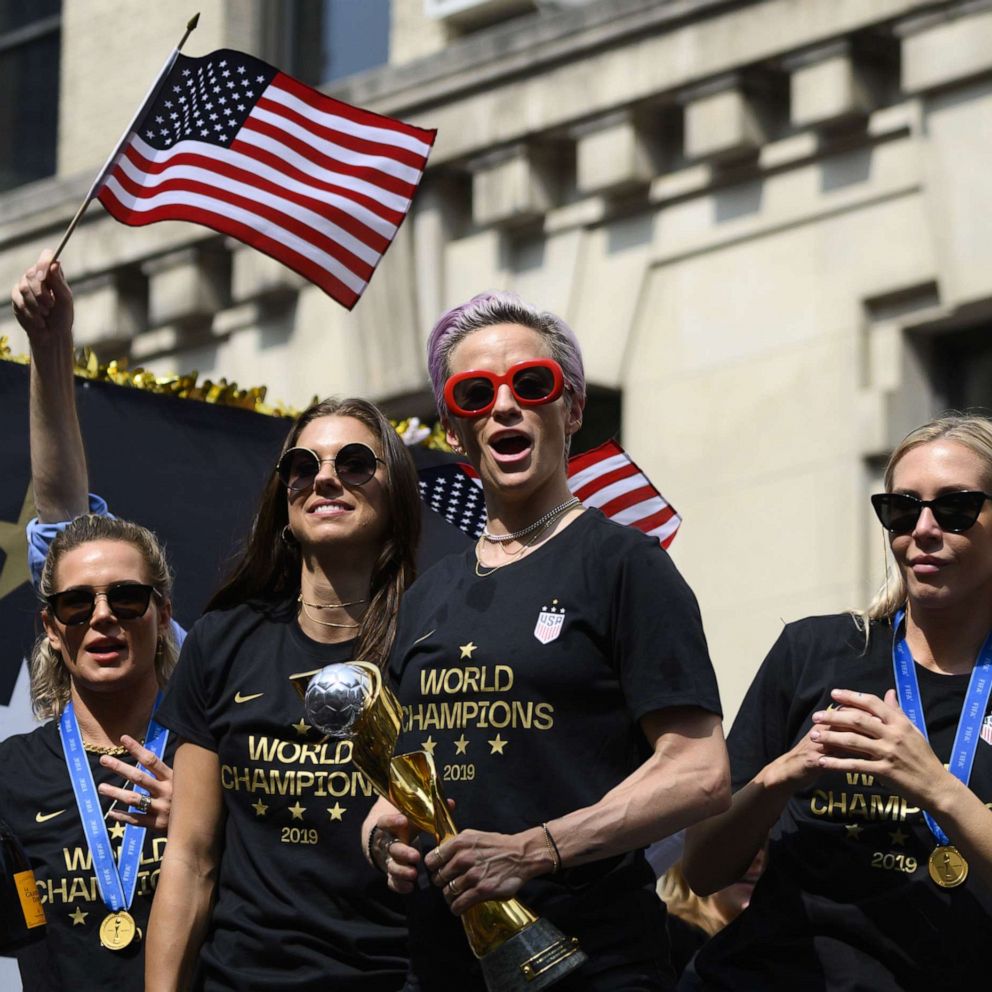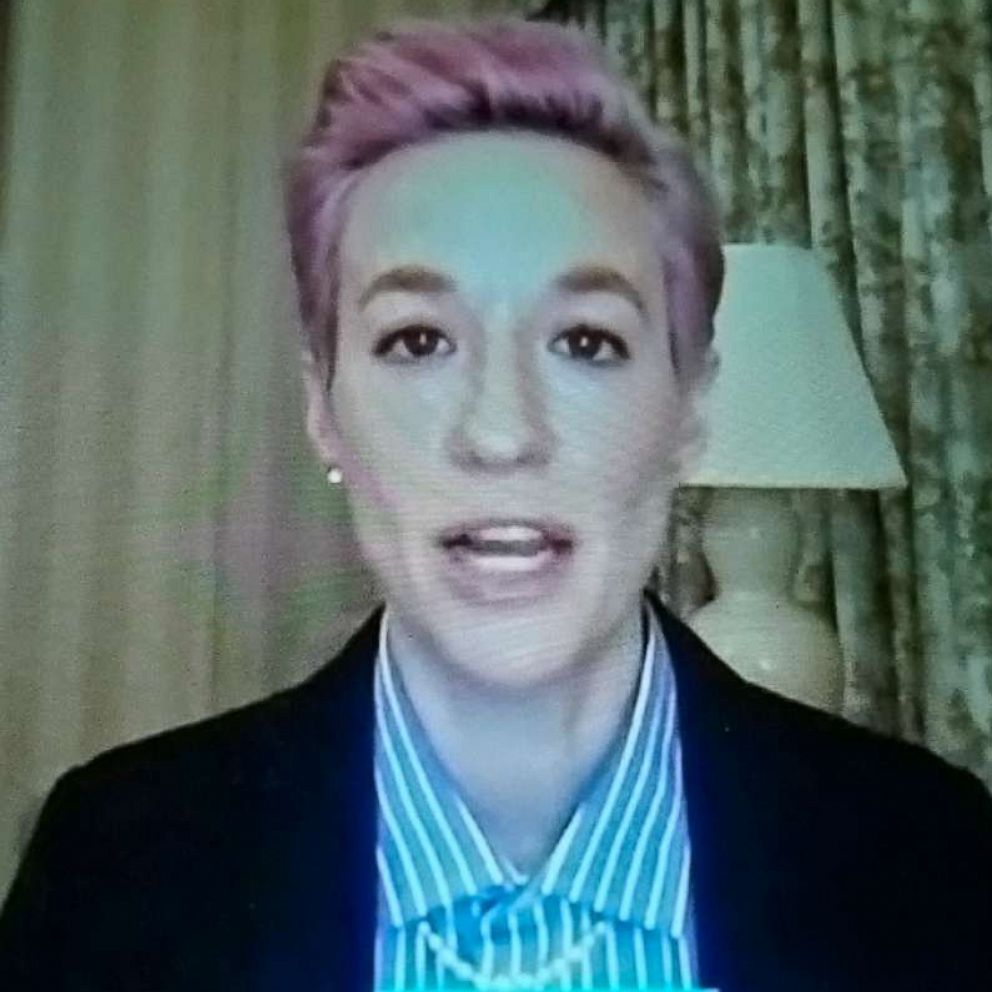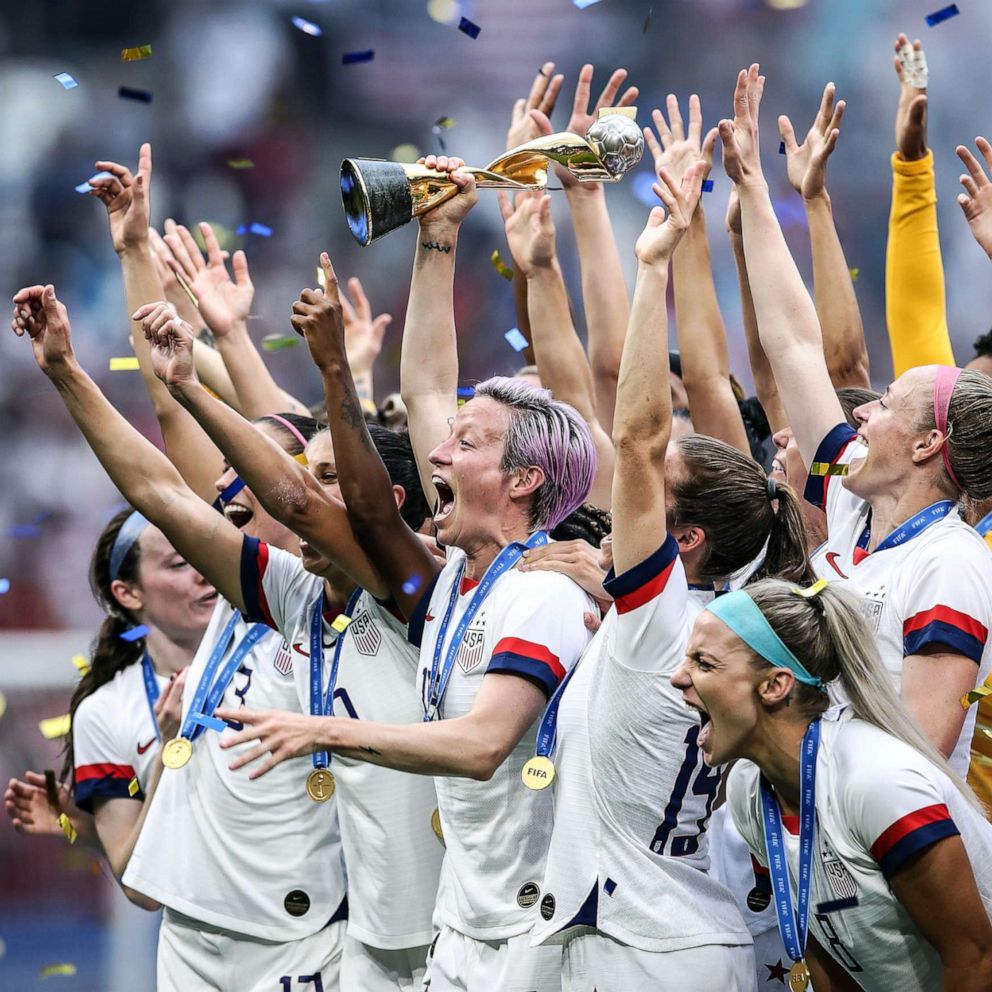US women's soccer team to earn equal pay in landmark deal
The U.S. Women's National Team filed an equal pay lawsuit three years ago.
Women who play soccer for the United States will now earn the same amount as men in a landmark equal pay win.
U.S. Soccer and the unions for both the men's and women's national teams announced Wednesday they reached a new collective bargaining agreement that will achieve "equal pay and set the global standard moving forward in international soccer."
Under the agreement, players on the U.S. Women's National Team (USWNT) and the U.S. Men's National Team (USMNT) will receive the same pay, including appearance fees and game bonuses, and be provided the same working conditions. While women's players previously had guaranteed salaries, they will now have the same pay-to-play structure as the men's players.
The two teams will also pool their World Cup prize money, which is unequally distributed by FIFA, the international governing body, and share the money equally, becoming the first soccer federation in the world to do so, according to the agreement.
“This is a truly historic moment," U.S. Soccer President Cindy Parlow Cone said in a statement. "These agreements have changed the game forever here in the United States and have the potential to change the game around the world."
"Finally," Molly Levinson, an adviser to the USWNT players in their fight for equal pay, told ABC News about the agreement. "Let this be a resounding call to every league, every sport, every workplace, every workforce, every C-suite, every boardroom.”
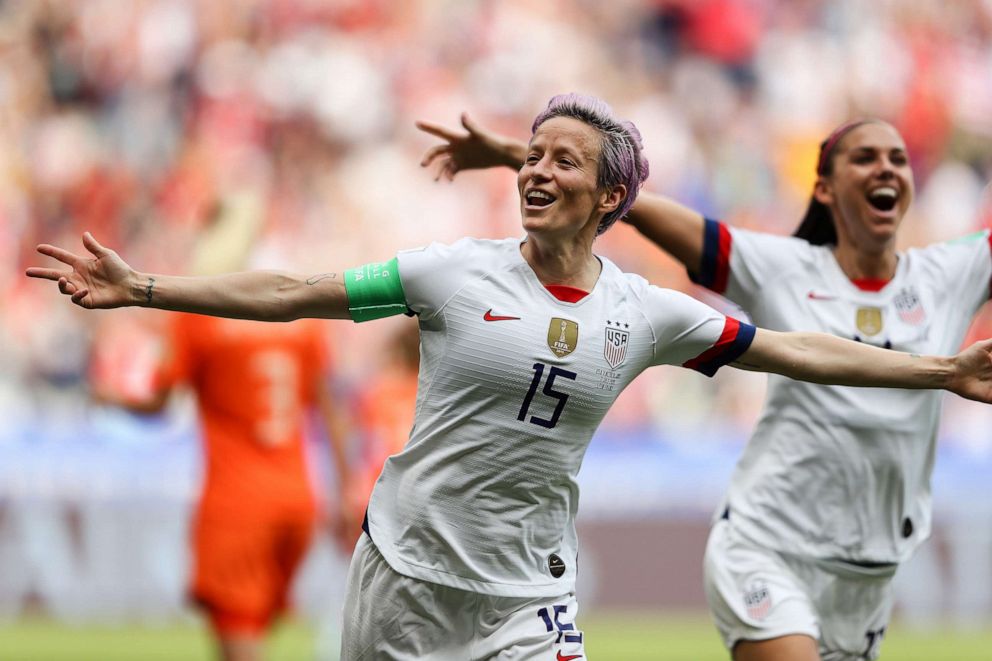
The USWNT's win on equal pay has been years in the making.
In 2016, a group of players filed an Equal Employment Opportunity Commission complaint against the USWNT over inequality in pay and treatment.
The following year, the women’s team reached an agreement with the USSF for the EEOC complaint. The agreement included direct and bonus pay increases and per diems equal to the men’s team, according to ESPNW, as well as improved travel and financial support for pregnant players or players looking to adopt children. While it was an improvement, it was still unequal.
In 2019, the USWNT filed an equal pay lawsuit that blasted soccer's national governing body for allegedly paying mere "lip service" to gender equality and dishing out markedly more pay to the men's team.
The lawsuit, filed in California federal court on International Women's Day, cited not just pay but also the denial of "at least equal playing, training, and travel conditions; equal promotion of their games; equal support and development for their games; and other terms and conditions of employment."
"We know in our hearts, and we know with the facts that we have, that we’re on the right side of this," Megan Rapinoe, a star forward for the team, told ABC News when the lawsuit was filed.
As an example of the pay gap, the lawsuit stated that female players earned $15,000 for making the World Cup team in 2013, while men earned $55,000 for making the team in 2014 and $68,750 in 2018.
The U.S. men's soccer team did not qualify for the 2018 FIFA World Cup. Their best finish was third place -- in 1930. The U.S. women's team, on the other hand, has won the World Cup four times -- in 1991, 1999, 2015 and 2019 -- and six Olympic medals, most recently winning bronze at the 2020 Tokyo Olympics.
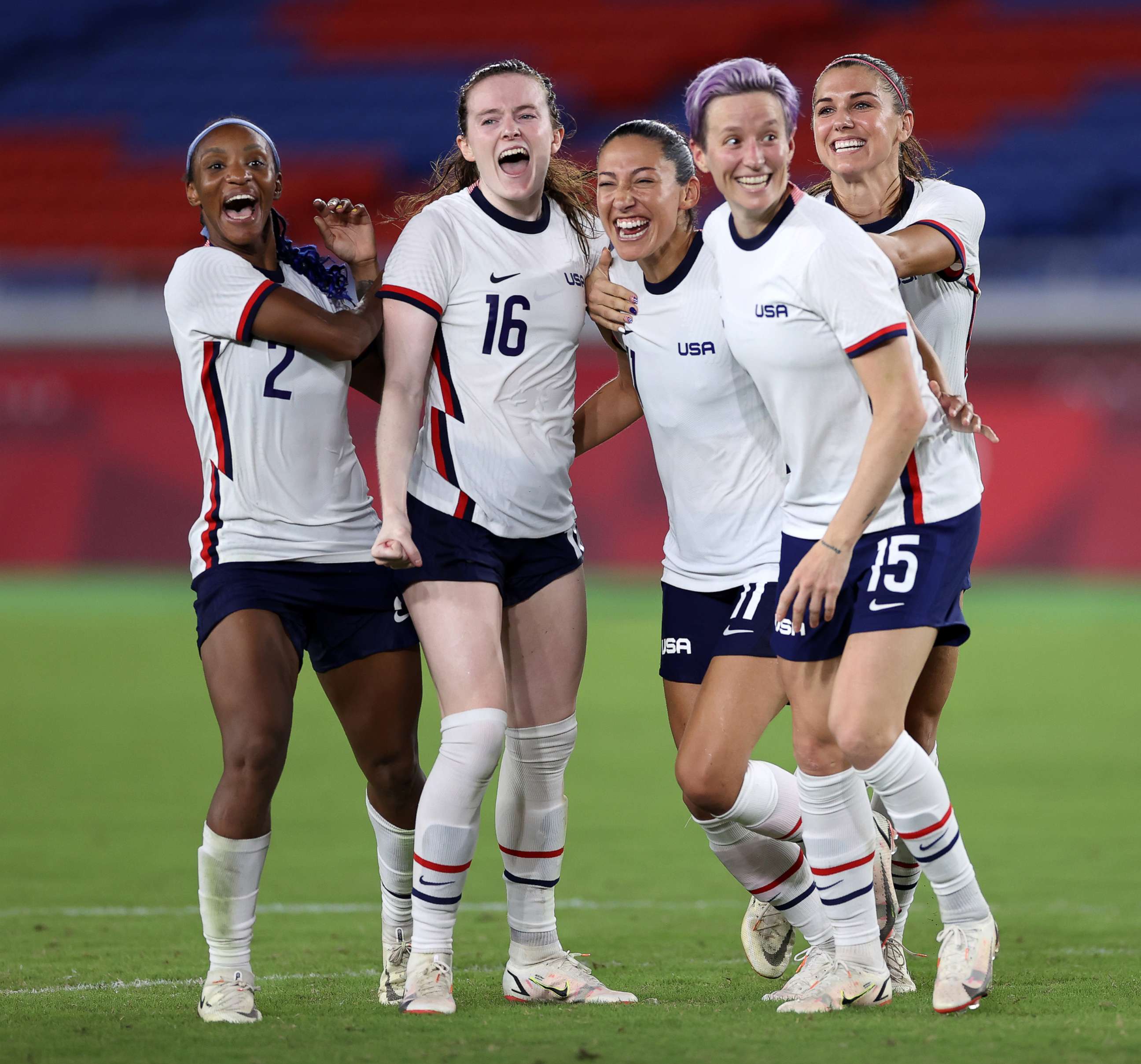
In February, the U.S. Soccer Federation (USSF) reached a settlement with USWNT on the lawsuit, agreeing to pay $22 million to the players in the case as well as an additional $2 million into an account to benefit the USWNT players in their post-career goals and charitable efforts related to women’s and girls’ soccer.
"This is just such a monumental step forward in feeling valued, feeling respected, and just mending our relationship with U.S. Soccer," USWNT player Alex Morgan told ABC News at the time the settlement was announced. "I not only see this as a win for our team or women's sports but women in general."
Rapinoe and Morgan have both been at the forefront of the fight for equal pay, not only for USWNT but for all women.
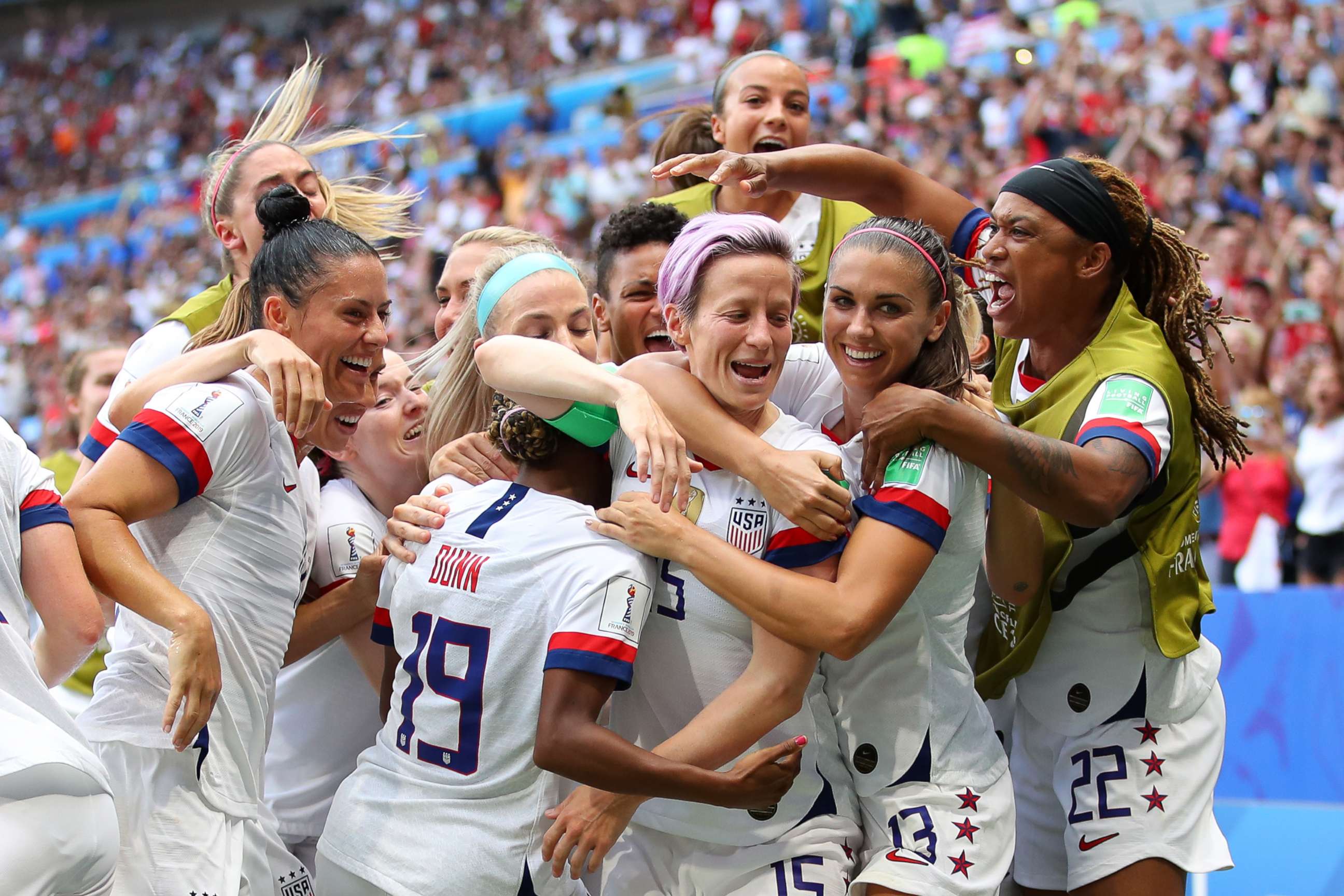
On average, women working full-time, year-round are paid 83 cents for every dollar paid to men, according to the National Women's Law Center, a policy-focused organization that fights for gender justice.
Last year, Rapinoe testified before Congress on the issue of equal pay, telling lawmakers, "If it can happen to us and it can happen to me with the brightest lights shining on us at all times, it can and it does happen to every person who is marginalized by gender."
"What we’ve learned and what we continue to learn is there’s no level of status, and there is no accomplishment or power, that will protect you from the clutches of inequality," Rapinoe said in her testimony. "One cannot simply outperform inequality or be excellent enough to escape discrimination of any kind."
ABC's Cheri Preston reports:
